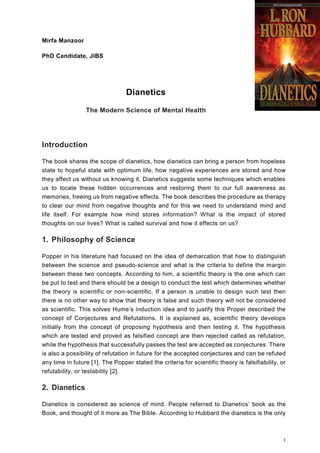The 10-Second Trick For Dianetics
The 10-Second Trick For Dianetics
Blog Article
Dianetics for Dummies
Table of ContentsGetting The Dianetics To WorkSome Ideas on Dianetics You Should KnowNot known Facts About DianeticsThe Definitive Guide for Dianetics
I could not ever not want to get anything that enters your mind for you- if it was otherwise, I wouldn't be sitting here with you, doing this. I not just can never ever have an issue, or otherwise wish to hear something that enters your mind for you, however I'm entirely excited to know every idea, every thought, every photo or sensation that emerges or shows up for you- don't ever believe or else, and if for one reason or another you do, please just allow me understand! In some cases, you may have an idea, and photo, idea or event appear that does not seem to respond to the question, or connect to it, yet nonetheless, constantly do tell me concerning it, and as we proceed, the importance will arise for you.This is fundamental in the basis of processing, and the subject of this conversation: the fundamental functions of the therapist and the client: The basic duty of the counselor is, unlike "typical training", not to manage, which suggests to impose and/or inhibit, but to rather function from the basis of EMPOWERING THE CUSTOMER.

About Dianetics
John Mcmasters revealed this basic reality splendidly well in one of his talks on Power handling, wherein he clarifies how he was asked what this "special propensity" was that he had for offering such fantastic sessions; he needed to think of that for a minute, and spotted that it was what he wasn't doing, along with what he was doing: he had not been reviewing, judging, computing, or as a matter of fact, generating any kind of ideas, allow alone spoken expressions, after offering the command and while waiting on the computer to finish their solution to their fulfillment; he was, just and just, being present with the computer, and totally interested.
The duty of the counselor, demonstrated; that was his "special knack". I have actually had my very own experience which instructed me this well, really beforehand in the game. In 1982, having actually lately completed my training and internship on New Era Dianetics, I was running this on a PC, and there was a factor in the session where (being a bit damp behind the ears not yet having many hours under my belt as an expert auditor) the PC appeared to be "taking as well long" to share anything my latest blog post verbally after I provided him a command.
This trick became the most important contribution that John ever before made to the topic of therapy or auditing (Dianetics). In my simple viewpoint, it is the best payment that anybody has actually ever made to these subjectsthe application is entirely non-judgemental, non-evaluative, and lacking any type of idea, advice or opinion.no preconceived schedule for individuals, or 'levels' that they need to do
In Scientology we prided ourselves on not evaluating for individuals. All that actually indicated was that the auditor did not VERBALLY assess for the PC in session.
Not known Details About Dianetics

Any person who had ever before seen John audit can not help but see a distinct top quality in his auditing."The client's basic function is to be there with the objective of relocating the instructions the original source of their spiritual goals, and to freely and fully reveal and experience whatever materializes for them in responding to the questions and implementing the instructions in the handling.
This is something to process as needed. But likewise, individuals regularly have prior experience and/or brainwashing in auditing/processing which, in some means, and to some levels, in fact misdirects them into mindsets, concepts and behavior patterns that protect against the complete realization of these roles, therefore they will certainly tend to inhibit the expressing of what comes to mind, as in the instances offered over. * The first, and maybe primary instances of mis-indoctrination leading to much less than completely smooth and effective sessions, can be found in particular facets of the training routines, or "TR's":"TR's" are usually an individual's initial, or a minimum of early, experience in Scientology, and while I will go on to discuss what I view as the flaws in idea and method, nonetheless, often tend to be significantly therapeutic, done as they are offered (Hubbard firmly insists that "TR's are not refining, they are educating", yet factually, they are both handling AND training)
Alan Walter made similar observations, and improved these with find his "Presence Processes". There is no "failing", and no denial of the truth of this being processing. The focus, as it ought to be, is on experiencing the various other person's existence. All the indications which obtain a "flunk" in doing "TR-0" are just the being's initiatives to stand up to the other individual's existence, and as opposed to being harassed and badgered with "Flunk", which enforces "failure!" on the being, one just requires to be encouraged to "stick their feet in the water a little much deeper", to increasingly rehabilitate their capacity and desire to fully share and experience "being below", or "visibility", with others.
How Dianetics can Save You Time, Stress, and Money.

Report this page